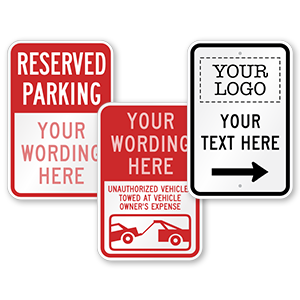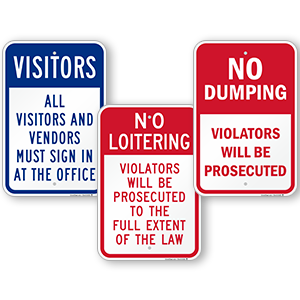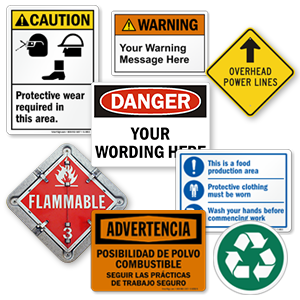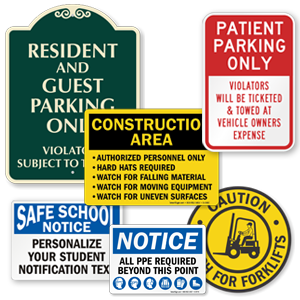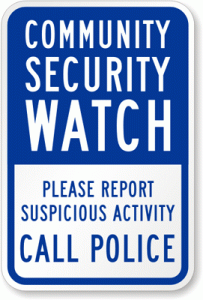Crime Watch or Crime Botch? The Legality of Neighborhood Watch Programs in the Trayvon Martin Case
Wednesday, April 11, 2012-
The past month has been rife with debate and outrage regarding the shooting of Trayvon Martin, in which a 17-year old boy was killed by self-appointed neighborhood watch volunteer George Zimmerman. A hacked digital sign in Detroit, Michigan recently highlighted the persistent tones of racism underlying the case, when it was re-programmed with a racial slur beneath the name ‘‘Trayvon.’’ The sign, which was displayed on I-94, was estimated by the Michigan Department of Transportation to have been viewed by around 50,000 drivers before officials managed to take it down.
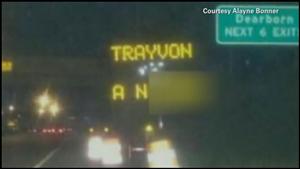
Hackers altered this sign to display a hate message.
While Trayvon’s killing has inspired protests of racism and racial profiling, it has also brought neighborhood watch programs under closer examination. Shooter George Zimmerman claimed he was justified in his actions, since he felt there existed a potentially life-threatening danger between himself and Martin. Here at SmartSign, we’ve always offered crime watch signs with the hope that their presence will encourage community members to be on the alert and protect one another. But at what point does an inclination to protect exceed its legal and moral limitations?
In twenty-four US states, some version of a Stand Your Ground law exists, which grants citizens the right to use defensive and potentially deadly force in specific cases. Florida was the first to enact the law in 2005, and included a specific caveat removing the “duty-to-retreat,” especially when threatened by an intruder in one’s own home.
Different iterations of Defense of Habitation laws, or Castle Laws – a nickname derived from the English common law dictum that ‘‘an Englishman’s home is his castle’’- have been in place for centuries. The duty-to-retreat is a legal doctrine declaring that, if possible, the victim of an intruder should safely retreat from the situation rather than confront the perpetrator. By cutting out this obligation, Florida made otherwise persecutable crimes very difficult to address if the person in question claimed self-defense, since the statute for potentially violent self-protection has been significantly broadened by the passing of Stand Your Ground. The legal discrepancy in prosecuting the shooter of Trayvon Martin arose because of Florida’s side-stepping of the core Castle Law policy that would dictate that avoidance be made a priority to retaliation. Such an oversight leaves room for speculative and subjective danger to be earmarked as cause for retribution.
If you live in one of the twenty-four states that upholds a Stand Your Ground law, it is important to know the facts about your rights as an individual and community member. The main argument in favor of arresting Zimmerman lies in the fact that he had not registered his neighborhood watch program with any national organization. Although Stand Your Ground does not specify the need to register any program of any sort, Zimmerman technically overstepped his bounds in terms of being threatened in a place of ‘‘dwelling.“ If Zimmerman had registered his neighborhood watch program, perhaps his actions may have had an easier time evading legal speculation. If there was official proof that he was protecting a ‘‘turf’’ that he had previously pledged to monitor, the criticism may have been muted.
If you choose to start a watch program of your own, it’s a good idea to register with an organization like USA on Watch or the National Neighborhood Watch Institute. Also keep in mind that although we’ve delved into the potential loopholes that have led to a delay in Zimmerman’s arrest, the team at SmartSign condones safety and protection, but not at the unnecessary cost of another’s well-being. Neighborhood watch programs should be a force for community building, not vigilante acts of questionable self-defense.
A sign like this can remind neighborhood watch participants to contact police instead of trying to deal with potentially dangerous situations on their own. As a friendly reminder, the NNWI says, “Always remember that your responsibility is to report crime. Do not take any risks to prevent a crime or try to make an arrest. The responsibility for apprehending criminals belongs to the police/sheriff.’’
– R. Sapon-White


